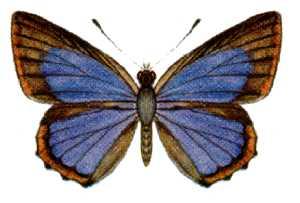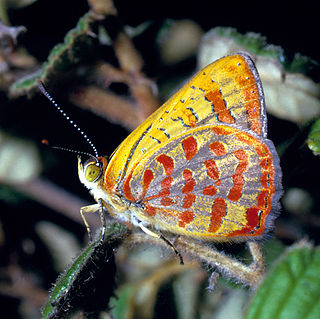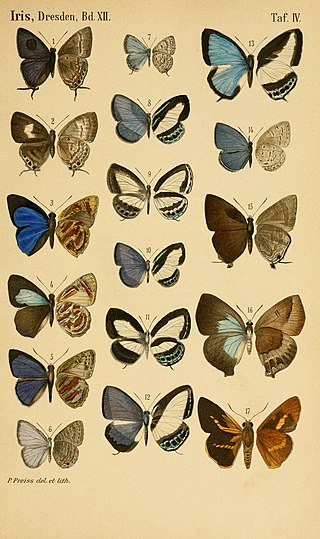
Equatorial Guinea, officially the Republic of Equatorial Guinea, is a country on the west coast of Central Africa, with an area of 28,000 square kilometres (11,000 sq mi). Formerly the colony of Spanish Guinea, its post-independence name refers to its location near both the Equator and in the African region of Guinea. As of 2021, the country had a population of 1,468,777, over 85% of whom are members of the Fang people, the country's dominant ethnic group. The Bubi people, indigenous to Bioko, are the second largest group at approximately 6.5% of the population.

Guinea, officially the Republic of Guinea, is a coastal country in West Africa. It borders the Atlantic Ocean to the west, Guinea-Bissau to the northwest, Senegal to the north, Mali to the northeast, Cote d'Ivoire to the southeast, and Sierra Leone and Liberia to the south. It is sometimes referred to as Guinea-Conakry after its capital Conakry, to distinguish it from other territories in the eponymous region such as Guinea-Bissau and Equatorial Guinea. Guinea has a population of 14 million and an area of 245,857 square kilometres (94,926 sq mi).

Guinea-Bissau, officially the Republic of Guinea-Bissau, is a country in West Africa that covers 36,125 square kilometres (13,948 sq mi) with an estimated population of 2,026,778. It borders Senegal to its north and Guinea to its southeast.

Papua New Guinea is a country in Oceania that comprises the eastern half of the island of New Guinea and its offshore islands in Melanesia. Officially the Independent State of Papua New Guinea, it shares its only land border with Indonesia to the west and it is directly adjacent to Australia to the south and the Solomon Islands to the east. Its capital, located along its southeastern coast, is Port Moresby. The country is the world's third largest island country, with an area of 462,840 km2 (178,700 sq mi).

The guinea pig or domestic guinea pig, also known as the cavy or domestic cavy, is a species of rodent belonging to the genus Cavia in the family Caviidae. Breeders tend to use the name "cavy" for the animal, but "guinea pig" is more commonly used in scientific and laboratory contexts. Despite their name, guinea pigs are not native to Guinea, nor are they closely related to pigs. They originated in the Andes region of South America. Studies based on biochemistry and hybridization suggest they are domesticated animals that do not exist naturally in the wild, descendants of a closely related cavy species such as C. tschudii. They were originally domesticated as livestock for a source of meat, and are still consumed in some parts of the world.

Hypochrysops is a genus of butterflies in the family Lycaenidae first described by Cajetan Felder and Rudolf Felder in 1860. This particular genus is exclusive to the Australian area with only a few species straying into Papua New Guinea.

Hypochrysops narcissus, the Narcissus jewel, is a member of the family Lycaenidae of butterflies.

Hypochrysops halyaetus, the western jewell, is a member of the family Lycaenidae of butterflies. It lives in Australia.

Hypochrysops epicurus, the dull jewel, is a butterfly of the family Lycaenidae found in Australia.

Hypochrysops byzos, the yellow-spot jewel, is a member of the family Lycaenidae. Its range consist of eastern Australia. The wingspan of both the male and female is about 3 cm.

Titea is a genus of butterflies in the family Lycaenidae.

The continent of Australia, sometimes known in technical contexts by the names Sahul, Australia-New Guinea, Australinea, or Meganesia to distinguish it from the country of Australia, is located within the Southern and Eastern hemispheres. The continent includes mainland Australia, Tasmania, the island of New Guinea, the Aru Islands, the Ashmore and Cartier Islands, most of the Coral Sea Islands, and some other nearby islands. Situated in the geographical region of Oceania, Australia is the smallest of the seven traditional continents.

New Guinea is the world's second-largest island, with an area of 785,753 km2 (303,381 sq mi). Located in Melanesia in the southwestern Pacific Ocean, the island is separated from Australia by the 150-kilometre wide Torres Strait, though both landmasses lie on the same continental shelf, and were united during episodes of low sea level in the Pleistocene glaciations as the combined landmass of Sahul. Numerous smaller islands are located to the west and east. The island's name was given by Spanish explorer Yñigo Ortiz de Retez during his maritime expedition of 1545 due to the resemblance of the indigenous peoples of the island to those in the African region of Guinea.

Hypochrysops resplendens is a species of butterfly of the family Lycaenidae. It is found on Aru.

Hypochrysops delicia, the moonlight jewel, is a member of the family Lycaenidae. It is found in eastern Australia.

Hypochrysops pagenstecheri is a butterfly of the family Lycaenidae endemic to New Britain. The name honours Arnold Pagenstecher.

Hypochrysops architas is a butterfly of the family Lycaenidae endemic to the Solomon Islands. It was first described by Hamilton Herbert Druce in 1891.














